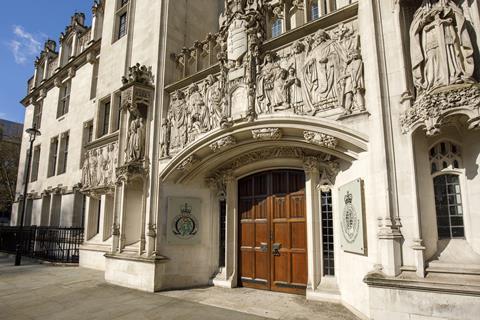Increasing fees in the Supreme Court could help raise up to an additional £210,000 a year for the court, the government said today. The announcement follows 'a series of reforms to raise funding to help recover some of the Supreme Court’s running costs from litigants’.
The proposals, which include updating fees every two years by inflation to ensure fees ‘continue to accurately reflect the costs of providing these services’, will come into force in April 2024. Supreme Court fees have not been amended since 2011 so their value has ‘reduced substantially due to inflation’, the government said. Under the new fees, the charge for filing an application for permission to appeal, currently £1,000 for civil cases, will increase to £1,390.

To resolve these issues, the consultation proposed simplifying the fee structure; removing the distinction between devolution jurisdiction cases and civil cases; increasing fees in line with historic inflation and routine fee reviews and uplifts to ensure ‘the long-term financial stability of the Supreme Court’.
The consultation, which closed in November 2023, received nine responses, five of which were from current members of the judiciary. Other respondents included a former lord chief justice, the Bar Council of England and Wales, the Bar Council of Northern Ireland and the Forum of Insurance Lawyers.
In a response to the consultation, the government said: ‘Increasing fees by inflation to reflect the increasing costs of the Supreme Court helps to maintain the funding of the system whilst easing the cost to the general taxpayer.
’The government will proceed to reform fees in the Supreme Court as set out in this consultation response. This will reduce the complexity in the fees system, provide the Supreme Court with an estimated additional £170k - £210k per annum income to deliver its important work, and establish a framework for fee changes in the future.’
This article is now closed for comment.



























5 Readers' comments